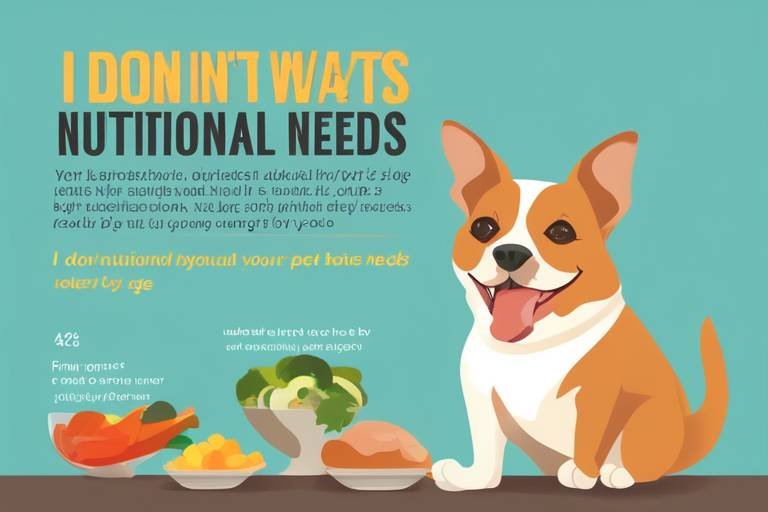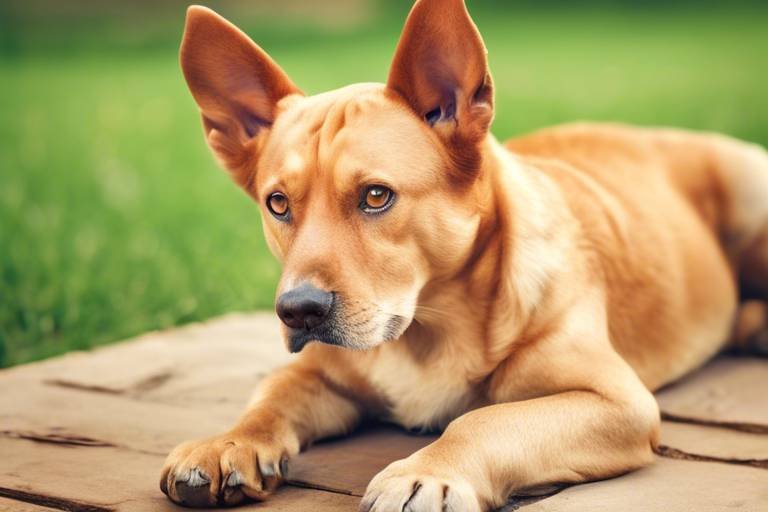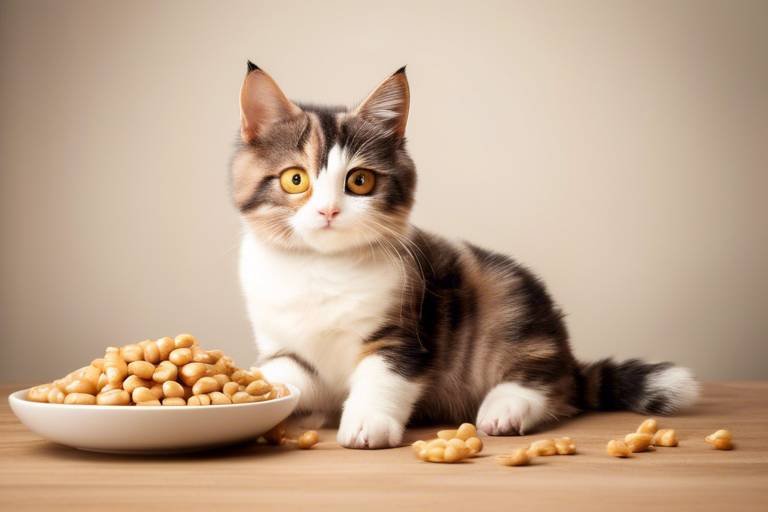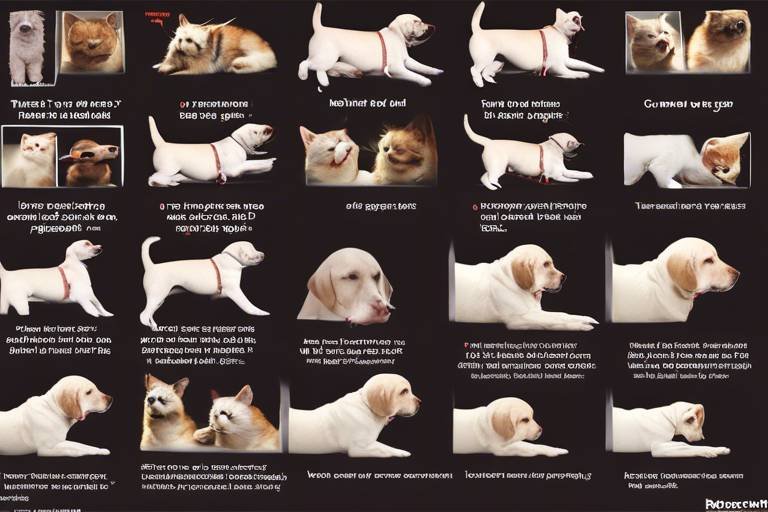Understanding Your Pet's Nutritional Needs by Age
When it comes to our furry friends, understanding their nutritional needs is crucial for their overall health and well-being. Just like humans, pets have different dietary requirements at various stages of their lives. From the moment they are born to their golden years, each life stage presents unique challenges and needs. Imagine your pet as a growing child; just as children need specific nutrients to thrive, so do our pets! In this article, we will explore the varying nutritional requirements of pets at different life stages, providing insights on how to tailor their diets for optimal health and well-being.
First off, let’s talk about puppies. These little bundles of joy have unique dietary needs that support their rapid growth and development. Puppies are like sponges, soaking up everything they can, and their bodies require a rich source of nutrients to fuel their energetic play and growth spurts. Key nutrients such as protein, fat, vitamins, and minerals are essential during this stage. Choosing the right food can feel overwhelming, but look for high-quality puppy food that lists meat as the first ingredient and contains DHA for brain development. Remember, a well-nourished puppy is a happy puppy!
As dogs transition into adulthood, their nutritional needs change significantly. Adult dogs require a balanced diet that maintains their energy levels, muscle mass, and overall health. This is where things can get a bit tricky. Adult dog food should have a good mix of protein, carbohydrates, and fats. It's important to note that not all dogs are created equal; factors like breed, size, and activity level can affect their dietary requirements. For instance, a high-energy breed may need more calories compared to a couch potato! Therefore, always consult with your veterinarian to determine the best diet for your adult dog.
Now, let’s shift gears and discuss senior dogs. As dogs age, they often require specialized diets to address age-related health issues. Think of senior dogs as wise old souls; they deserve the best care in their twilight years. Nutrient adjustments may include lower calories to prevent obesity, increased fiber for digestive health, and joint-supporting supplements like glucosamine. A senior dog might not be as spry as they used to be, but with the right nutrition, they can still enjoy life to the fullest!
Moving on to our feline friends, kittens also grow quickly and have specific dietary needs. A kitten’s diet must be rich in protein and fat to support their rapid growth and development. Just like a toddler who needs a balanced diet for growth spurts, kittens thrive on high-quality kitten food that provides the necessary nutrients. Look for foods that are specifically formulated for kittens, as these will have the right balance of nutrients to support their playful antics and healthy development.
Once our kittens grow into adult cats, their nutritional needs change once again. Adult cats are obligate carnivores, meaning they need a diet high in meat. Unlike dogs, cats require specific nutrients such as taurine, which is vital for heart and eye health. When selecting cat food, ensure it contains real meat and is free from excessive fillers. A well-fed cat is usually a happy cat, and keeping their diet balanced is key to maintaining their health and vitality.
As cats age, their nutritional requirements evolve, similar to dogs. Senior cats may face challenges such as dental issues or decreased activity levels, necessitating dietary changes. Senior cat food typically contains fewer calories and more fiber, aiding in digestion and weight management. Additionally, look for foods that support joint health and overall wellness. Your senior cat deserves a diet that caters to their unique needs, ensuring they remain healthy and active in their golden years.
It’s also crucial to recognize common nutritional deficiencies that pets of all ages can experience. Some pets may lack vital nutrients due to poor-quality food or dietary restrictions. Common deficiencies include:
- Calcium: Essential for bone health.
- Omega-3 fatty acids: Important for skin and coat health.
- Vitamins A, D, and E: Necessary for various bodily functions.
Addressing these deficiencies through diet and supplementation is vital for your pet's health. Always consult with a veterinarian to ensure your pet's diet is well-rounded and meets their specific needs.
Lastly, regular veterinary consultations are essential for understanding your pet's specific nutritional needs. Your vet can provide personalized guidance and recommendations based on your pet's age, breed, and health status. Creating a tailored diet plan with professional help can make all the difference in your pet's life.
Q: How often should I feed my puppy?
A: Puppies typically need to be fed three to four times a day. As they grow, you can gradually reduce the number of meals to twice a day.
Q: Can I switch my dog's food suddenly?
A: It’s best to transition your dog’s food gradually over a week to avoid digestive upset.
Q: What are the signs of nutritional deficiencies in pets?
A: Signs can include lethargy, poor coat condition, and changes in appetite or weight. Always consult your vet if you notice any changes.
Q: Should I give my senior cat supplements?
A: Consult your veterinarian about whether supplements are necessary for your senior cat’s specific health needs.

Puppy Nutrition Essentials
Puppies are bundles of energy, curiosity, and, most importantly, growth! During their first year, they undergo rapid development, which means their nutritional needs are quite different from those of adult dogs. It's crucial to provide them with a diet that supports not just their physical growth but also their mental development. Think of it like fueling a high-performance race car; you wouldn't fill it with just any gas, right? You need the right blend to keep it running smoothly.
When selecting food for your puppy, look for options that are specifically formulated for their age group. These foods are typically higher in calories, protein, and essential nutrients compared to adult dog food. Key nutrients to focus on include:
- Protein: Essential for muscle development, puppies require a diet rich in high-quality protein sources.
- Fats: Healthy fats provide energy and support brain development. Look for sources like fish oil or chicken fat.
- Vitamins and Minerals: Calcium and phosphorus are vital for developing strong bones and teeth.
- Omega Fatty Acids: These promote a healthy coat and skin, which is especially important for puppies.
But how do you know if you're choosing the right food? Start by checking the label! Look for a statement from the Association of American Feed Control Officials (AAFCO) which indicates that the food meets the nutritional levels established for puppies. If you're ever in doubt, don't hesitate to consult your veterinarian. They can provide personalized recommendations based on your puppy's breed, size, and health status.
Another important aspect of puppy nutrition is feeding frequency. Unlike adult dogs, puppies have smaller stomachs and higher energy needs, so they should be fed more frequently. Generally, it's recommended to feed puppies three to four meals a day until they are about six months old. This not only helps them get the necessary nutrients but also keeps their energy levels stable throughout the day.
As your puppy grows, you may need to adjust their diet. Transitioning to adult food should occur around the age of one year, depending on their breed and size. Larger breeds may require a longer puppy stage, while smaller breeds might be ready sooner. It's like moving from a booster seat to a regular seat in a car; it’s all about making sure they are ready for the next step!
In summary, understanding your puppy's nutritional needs is essential for setting them up for a healthy, happy life. By providing a balanced diet rich in the right nutrients, you'll be giving your furry friend the best start possible. Remember, a well-nourished puppy is a happy puppy!

Adult Dog Dietary Requirements
As our furry friends transition into adulthood, their nutritional needs evolve significantly. Just like us, dogs require a balanced diet that supports their energy levels, maintains muscle mass, and promotes overall health. It's essential to understand that the right food can dramatically influence your dog's vitality and longevity. So, what exactly should you be looking for in an adult dog diet?
Adult dogs typically need a diet that is rich in protein, healthy fats, and a variety of vitamins and minerals. Protein is crucial for maintaining muscle mass, while healthy fats provide the energy your dog needs to stay active. Additionally, a mix of vitamins and minerals helps support various bodily functions, including immune health and skin integrity. But how do you ensure your dog is getting all these nutrients?
When selecting dog food, it’s important to read the labels carefully. Look for high-quality ingredients and avoid foods with fillers like corn and soy, which provide little nutritional value. A good rule of thumb is to choose a food where the first ingredient is a named meat source, such as chicken, beef, or fish. This indicates that it contains a substantial amount of protein, which is vital for your dog's health.
Moreover, the caloric intake is also a critical factor. Adult dogs generally require fewer calories than puppies, but this can vary based on their size, breed, and activity level. For instance, a highly active dog may need more calories than a more sedentary one. To help you gauge the right amount, here’s a simple table outlining the average daily caloric needs based on weight:
| Dog Weight (lbs) | Daily Caloric Needs |
|---|---|
| 10-20 lbs | 400-600 calories |
| 21-50 lbs | 600-1,200 calories |
| 51-100 lbs | 1,200-1,800 calories |
| Over 100 lbs | 1,800+ calories |
In addition to the right balance of nutrients, hydration is equally important. Always ensure your dog has access to fresh, clean water. Dehydration can lead to serious health issues, and dogs are often not as good at self-regulating their water intake as we might think.
Lastly, don’t forget about the importance of regular vet check-ups. Your veterinarian can provide personalized recommendations based on your dog's specific needs, considering factors such as age, breed, and health conditions. They can also help you identify any potential food sensitivities or allergies that may arise as your dog ages.
In conclusion, catering to your adult dog's dietary requirements is not just about feeding them; it's about ensuring they thrive. With the right balance of nutrients, proper hydration, and regular veterinary advice, you can help your furry companion live a healthy and active life.
Q: How much should I feed my adult dog?
A: The amount varies based on your dog's weight, activity level, and the specific food brand. Refer to the feeding guidelines on the dog food packaging and consult your vet for personalized advice.
Q: Can I feed my adult dog homemade food?
A: Yes, but it's crucial to ensure that the homemade diet is nutritionally balanced. Consult with your veterinarian to create a suitable recipe that meets all of your dog's dietary needs.
Q: Should I change my dog's diet as they age?
A: Yes, as dogs age, their nutritional needs change. Senior dogs often require diets lower in calories and higher in fiber. Consult your vet for the best dietary options for aging dogs.

Senior Dog Nutrition
As our beloved dogs age, their nutritional needs evolve significantly. It's like watching a vibrant, energetic child transform into a wise elder; the same applies to our furry friends. Senior dogs often face various health challenges, and their diet plays a crucial role in maintaining their overall well-being. So, what should you consider when feeding your senior dog? Let’s dive into the essential nutrients and dietary adjustments that can help keep your canine companion healthy and active.
First and foremost, protein becomes a vital component of a senior dog's diet. Aging dogs tend to lose muscle mass, and a protein-rich diet can help mitigate this issue. Aim for high-quality protein sources such as chicken, fish, or lamb. These proteins not only support muscle maintenance but also provide the necessary amino acids for overall health. Remember, though, that the protein content shouldn't be excessively high, as it could strain their kidneys. A balanced approach is key!
In addition to protein, fiber should be a priority in your senior dog's diet. As dogs age, their digestive systems may slow down, leading to constipation or other gastrointestinal issues. Incorporating fiber-rich foods such as pumpkin, sweet potatoes, or specially formulated senior dog foods can aid digestion and promote regular bowel movements. Fiber also helps in managing weight, which is crucial since many senior dogs become less active and prone to obesity.
Moreover, senior dogs benefit from joint-supporting nutrients. Ingredients like glucosamine and chondroitin can help maintain joint health and mobility. These nutrients are often found in senior dog foods or can be given as supplements. If your dog seems to struggle with mobility or exhibits signs of arthritis, these additions can make a world of difference in their quality of life. Think of it as providing a comfy cushion for their aging joints!
Hydration is another critical aspect of senior dog nutrition. Older dogs may not drink water as frequently, which can lead to dehydration. Ensure that fresh water is always available, and consider incorporating wet food into their diet, as it contains higher moisture content. This is especially important for dogs with kidney issues, as staying hydrated can help support kidney function.
Lastly, it’s essential to monitor your senior dog’s weight and adjust their caloric intake accordingly. Many older dogs require fewer calories than their younger counterparts due to decreased activity levels. However, it’s crucial to ensure they still receive all the necessary nutrients. A balanced diet tailored to their specific needs can help prevent obesity and related health problems.
| Nutrient | Importance | Sources |
|---|---|---|
| Protein | Supports muscle maintenance | Chicken, Fish, Lamb |
| Fiber | Aids digestion and weight management | Pumpkin, Sweet Potatoes, Senior Dog Foods |
| Joint-supporting Nutrients | Maintains joint health and mobility | Glucosamine, Chondroitin |
| Hydration | Prevents dehydration | Wet food, Fresh water |
In conclusion, understanding and adjusting your senior dog's diet is essential for their health and longevity. By focusing on high-quality proteins, fiber, joint-supporting nutrients, and hydration, you can significantly enhance their quality of life in their golden years. Always keep an eye on their weight and consult with your veterinarian to ensure your furry friend is receiving the best possible care.
- What should I look for in senior dog food? Look for high-quality protein sources, added fiber, and joint-supporting nutrients like glucosamine.
- How often should I feed my senior dog? Most senior dogs do well with two meals a day, but consult your vet for personalized advice.
- Can I give my senior dog supplements? Yes, but always consult your veterinarian before adding any supplements to their diet.

Kittens' Nutritional Needs
Kittens are like little bundles of energy, constantly exploring their world and growing at an astonishing rate. During the first year of their lives, they undergo rapid physical and mental development, which makes their nutritional needs quite unique. Just like a toddler needs a balanced diet to grow strong and healthy, kittens require specific nutrients to support their growth and ensure they develop into healthy adult cats. But what exactly do they need?
First and foremost, protein is essential. Kittens need a higher protein intake than adult cats because it aids in muscle development and overall growth. Look for kitten food that contains high-quality animal proteins, such as chicken or fish, as these are more easily digestible. The ideal protein content for kitten food should be around 30-40% of the total diet. This is crucial because, without adequate protein, your kitten may not thrive as expected.
In addition to protein, fat is another vital component of a kitten's diet. Healthy fats provide energy and are essential for the development of the brain and nervous system. The right balance of fat in their diet helps maintain a shiny coat and healthy skin. Aim for a fat content of about 20% in their food, focusing on sources like fish oil or chicken fat, which are rich in omega-3 and omega-6 fatty acids.
Moreover, vitamins and minerals play a critical role in a kitten's diet. Essential nutrients like calcium and phosphorus are necessary for developing strong bones and teeth. A deficiency in these minerals can lead to serious health problems down the line. Look for kitten food that is fortified with these essential vitamins and minerals to ensure your little furball gets a well-rounded diet. The right balance of these nutrients is crucial, and a good rule of thumb is to check the label for AAFCO (Association of American Feed Control Officials) certification, which indicates that the food meets the nutritional standards for kittens.
Hydration is equally important. Kittens, like all pets, need access to fresh water at all times. While wet food can help with hydration, especially if your kitten is not drinking enough water, it's essential to ensure they have a separate bowl of clean water available. Dehydration can lead to serious health issues, so keeping your kitten hydrated is a top priority.
When choosing the right food for your kitten, consider their age and activity level. Kittens are typically weaned from their mother's milk around 4 weeks and should be transitioned to solid food gradually. Start with high-quality commercial kitten food, either dry or wet, and make sure to follow feeding guidelines on the packaging. It's a good idea to consult with your veterinarian to determine the best diet plan tailored to your kitten's specific needs, considering factors like breed and health status.
In summary, kittens require a diet rich in protein, healthy fats, and essential vitamins and minerals to support their rapid growth and development. Paying attention to their nutritional needs during this critical stage will set the foundation for a healthy and vibrant life. So, when you're out shopping for your little furball, remember: their food is more than just a meal; it's the building block for their future health!
- What is the best food for kittens? Look for high-quality kitten food that lists a protein source as the first ingredient and is specifically formulated for kittens.
- How often should I feed my kitten? Kittens should be fed multiple times a day—typically three to four meals until they are about six months old.
- Can I feed my kitten adult cat food? No, adult cat food does not provide the necessary nutrients that kittens need for growth and development.
- When can I switch my kitten to adult cat food? Most kittens can transition to adult food around 12 months of age, but consult your vet for personalized advice.

Adult Cat Diets
When it comes to feeding your furry friend, understanding their unique nutritional needs is crucial for maintaining their health and vitality. Adult cats, typically aged 1 to 7 years, have distinct dietary requirements that differ significantly from those of puppies or senior cats. These requirements are not just about filling their bellies; they play a vital role in ensuring your cat remains energetic, playful, and free from health issues.
First and foremost, a balanced diet for adult cats should be high in protein. Cats are obligate carnivores, which means that their bodies are designed to thrive on meat. Protein is essential for muscle maintenance, tissue repair, and overall energy. Look for cat foods that list real meat as the first ingredient; this ensures your cat is getting the necessary nutrients they need. A good rule of thumb is that adult cats require about 30-40% of their diet to come from protein sources.
Another important component of an adult cat’s diet is fat. Healthy fats provide essential fatty acids that support skin and coat health, as well as contribute to energy levels. However, moderation is key, as too much fat can lead to obesity, a common issue in indoor cats. Aim for a diet that contains around 15-20% fat. Ingredients like fish oil or chicken fat are great sources of these healthy fats, so keep an eye out for them in your cat's food.
In addition to protein and fat, adult cats also need a variety of vitamins and minerals to support their overall health. Essential nutrients such as taurine, an amino acid critical for heart health and vision, should be included in their diet. Commercial cat foods are typically fortified with these nutrients, but if you're considering a homemade diet, it’s crucial to consult with a veterinarian to ensure all nutritional bases are covered.
Hydration is another aspect often overlooked in cat diets. Cats are not natural drinkers and may not consume enough water, especially if they're eating dry kibble. To encourage hydration, consider incorporating wet food into their diet, which can provide extra moisture. Alternatively, always ensure fresh water is available to them. A hydrated cat is a healthy cat!
When selecting food for your adult cat, it's vital to choose high-quality brands that meet the standards set by the Association of American Feed Control Officials (AAFCO). These guidelines ensure that the food is nutritionally complete and balanced. You might also want to consider your cat's lifestyle—active cats may require more calories than their less active counterparts. Here’s a quick comparison of different types of cat food:
| Type of Food | Pros | Cons |
|---|---|---|
| Dry Kibble | Convenient, helps with dental health | Low moisture content |
| Canned Food | High moisture, palatable | More expensive, can spoil quickly |
| Raw Diet | Natural, high protein | Risk of bacterial contamination |
In summary, feeding your adult cat a balanced diet rich in protein and healthy fats, while ensuring they receive all the necessary vitamins and minerals, is essential for their health. Always keep an eye on their weight and adjust their food intake accordingly. Remember, a happy and healthy cat is a well-fed cat!
- How much should I feed my adult cat? – It depends on their weight, age, and activity level. Generally, follow the feeding guidelines on the cat food packaging and consult your vet for personalized advice.
- Can I feed my cat a vegetarian diet? – While it’s possible, it’s not recommended. Cats require specific nutrients found in animal products, such as taurine, which are hard to obtain from a vegetarian diet.
- Is it okay to give my cat treats? – Yes, but treats should make up no more than 10% of their daily caloric intake to avoid obesity.

Senior Cat Nutritional Adjustments
As our feline friends gracefully age, their nutritional needs undergo significant changes that are crucial for maintaining their health and vitality. Just like humans, senior cats experience a shift in metabolism and may face age-related health issues, such as kidney disease, arthritis, and dental problems. This means that the food they consume must be adjusted to cater to these evolving needs. So, what should you consider when it comes to your senior cat's diet?
Firstly, it's essential to focus on high-quality proteins. Older cats often lose muscle mass, and incorporating more readily digestible proteins can help them maintain their strength. Look for cat foods that list real meat as the first ingredient. Additionally, consider the protein content; while kittens may thrive on high protein, senior cats typically require a moderate amount to prevent excessive weight gain while still supporting muscle maintenance.
Another important aspect is caloric intake. Senior cats tend to be less active, which means they require fewer calories than they did in their younger years. Overfeeding can lead to obesity, which can exacerbate health issues like diabetes and joint problems. Therefore, it's advisable to consult with your veterinarian to determine the appropriate caloric intake based on your cat's weight, age, and activity level.
Moreover, hydration is key! Older cats are often prone to dehydration, especially if they have kidney issues. Ensure that fresh water is always available, and consider incorporating wet food into their diet, as this can significantly increase their water intake. Wet food not only provides hydration but also tends to be more palatable for older cats, making mealtime more enjoyable.
When it comes to vitamins and minerals, senior cats may benefit from supplements that support joint health, such as glucosamine and omega-3 fatty acids. These nutrients can help reduce inflammation and improve mobility, which is essential for keeping your cat active and engaged. Always consult your veterinarian before introducing any new supplements into your cat's diet.
Lastly, don't forget about dental health! Older cats often face dental issues that can affect their ability to eat comfortably. Consider providing dental treats or special dental diets designed to promote oral health. Regular veterinary check-ups are vital to monitor your cat's dental health and make necessary adjustments to their diet.
In summary, adjusting your senior cat's diet is not just about changing their food; it's about enhancing their quality of life. By focusing on high-quality proteins, managing caloric intake, ensuring proper hydration, and incorporating beneficial vitamins and minerals, you can help your beloved feline age gracefully and enjoy their golden years to the fullest.
- What should I feed my senior cat? A balanced diet with high-quality protein, moderate calories, and adequate hydration is essential. Consult your vet for specific recommendations.
- How can I tell if my senior cat is overweight? You should be able to feel your cat's ribs without pressing hard, and they should have a visible waist when viewed from above.
- Are there specific foods to avoid for senior cats? Yes, avoid foods high in carbohydrates and fillers, as well as those with artificial additives.
- How often should I feed my senior cat? It’s often beneficial to feed smaller, more frequent meals to accommodate their changing metabolism.
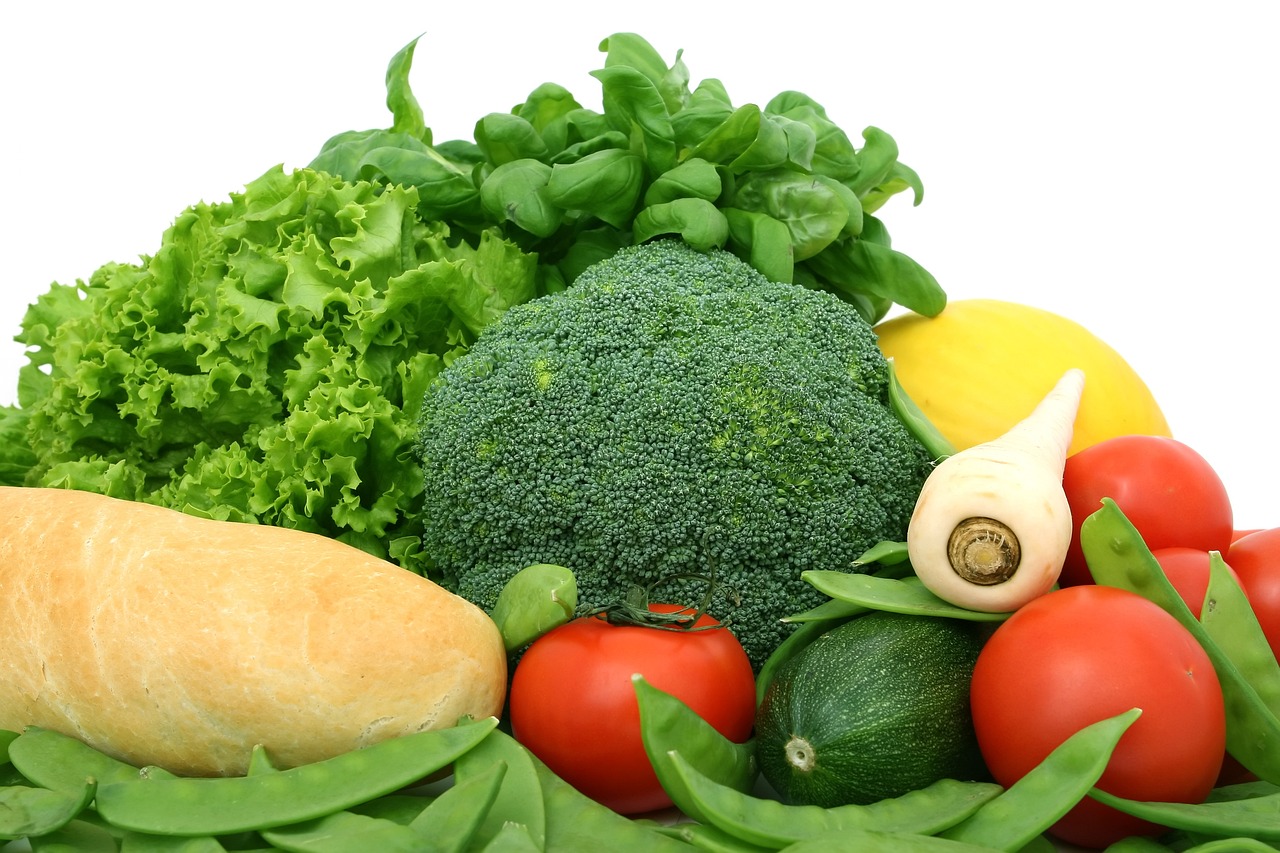
Common Nutritional Deficiencies
Nutritional deficiencies can sneak up on our beloved pets, often manifesting in subtle ways that are easy to overlook. Just like humans, pets require a balanced diet to thrive. However, various factors such as age, breed, and lifestyle can lead to imbalances in their nutrition. For instance, puppies and kittens, with their rapid growth rates, have increased needs for certain nutrients. On the other hand, senior pets may struggle to absorb nutrients as efficiently as they once did, making them more susceptible to deficiencies.
Some of the most common nutritional deficiencies in pets include:
- Protein Deficiency: Essential for growth and repair, a lack of protein can lead to muscle wasting and a weakened immune system.
- Vitamin A Deficiency: Critical for vision and skin health, a deficiency can cause night blindness and dry skin.
- Calcium Deficiency: Important for bone health, a lack of calcium can lead to skeletal deformities in young pets and osteoporosis in older ones.
- Omega-3 Fatty Acids Deficiency: These healthy fats support skin and coat health, as well as cognitive function. A deficiency can result in dry skin and poor coat quality.
- Iron Deficiency: Essential for red blood cell production, a lack of iron can lead to anemia, causing fatigue and weakness.
It's crucial to recognize the signs of these deficiencies early. For example, if your pet is experiencing lethargy, poor coat condition, or changes in appetite, it might be time to reevaluate their diet. Regular veterinary check-ups can help spot these issues before they escalate. Your vet can suggest dietary adjustments or supplements to ensure that your pet is getting everything they need for a healthy, vibrant life.
Moreover, understanding the specific needs of your pet's breed and age can significantly reduce the risk of nutritional deficiencies. For example, large breed puppies may require a diet lower in calcium to prevent developmental orthopedic diseases, while senior dogs may benefit from diets enriched with antioxidants to support their aging bodies. Tailoring your pet's diet not only addresses their unique needs but also promotes overall well-being.
In conclusion, being proactive about your pet's nutrition is vital. By staying informed and consulting with your veterinarian, you can ensure that your furry friend receives a balanced diet that meets all their nutritional requirements. Remember, a well-nourished pet is a happy pet!
1. How can I tell if my pet has a nutritional deficiency?
Look for signs such as lethargy, poor coat condition, weight loss, or changes in appetite. If you notice any of these symptoms, consult your veterinarian.
2. Are there specific foods that can help prevent nutritional deficiencies?
Yes, a balanced diet that includes high-quality proteins, vitamins, and minerals is essential. Consult your vet for recommendations tailored to your pet's needs.
3. Can I give my pet supplements for nutritional deficiencies?
Supplements can be beneficial, but they should only be given under the guidance of a veterinarian to avoid overdosing on certain nutrients.
4. How often should I consult my vet about my pet's diet?
Regular check-ups, at least once a year, are recommended. However, if you notice any changes in your pet's health or behavior, schedule a visit sooner.
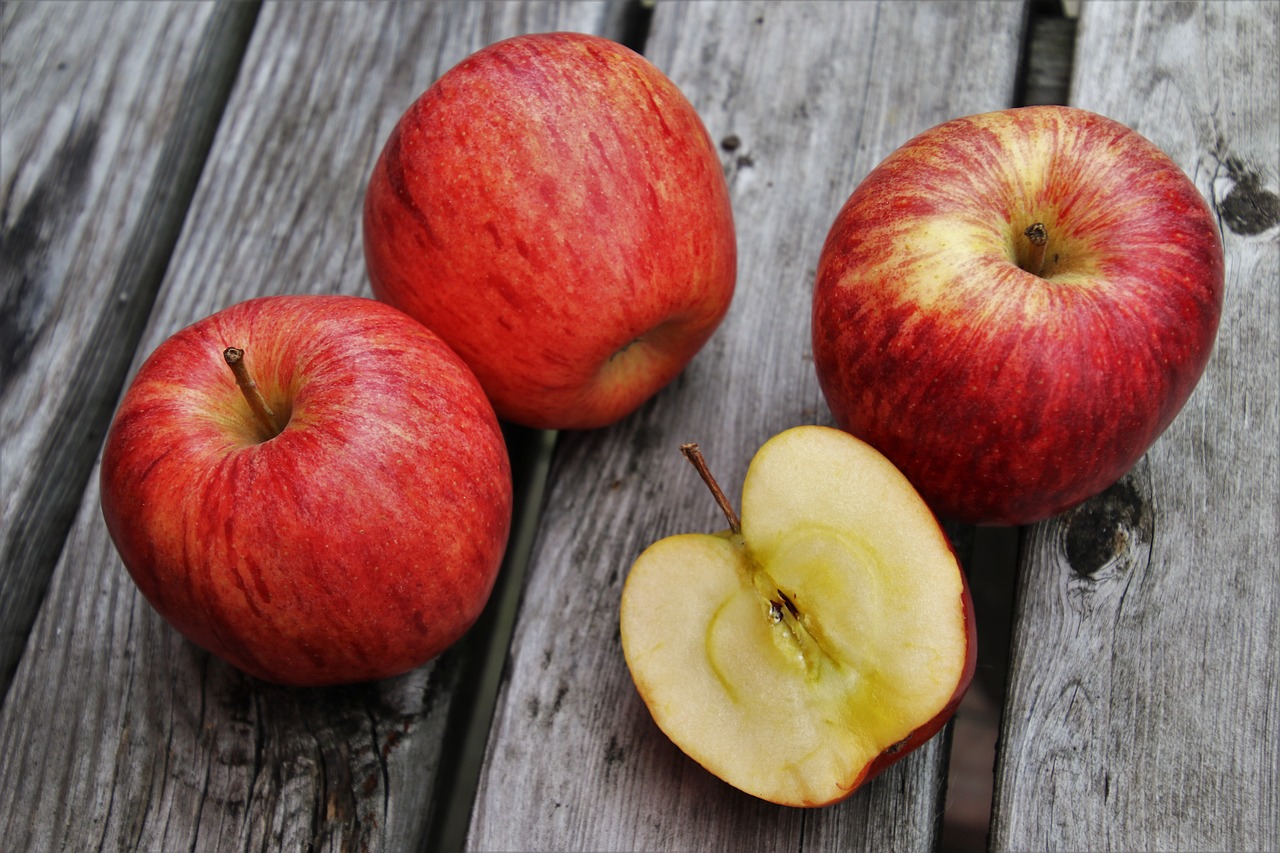
Consulting a Veterinarian
When it comes to your pet's health, consulting a veterinarian is not just a good idea—it's an absolute necessity! Think of your vet as your pet's personal health coach, guiding you through the maze of nutritional needs tailored specifically for your furry friend. Just like humans, pets have unique dietary requirements that can change over time, influenced by factors such as age, breed, activity level, and health status. So, how can you ensure that you're meeting these needs? Regular check-ups and open communication with your veterinarian are key!
During these consultations, your vet can assess your pet's overall health and recommend dietary adjustments to keep them thriving. For example, if your dog is gaining weight, your vet may suggest a lower-calorie food or adjustments in portion sizes. Conversely, if your kitten is not gaining weight sufficiently, your vet can recommend high-calorie options to support their growth. It's all about finding the right balance!
Moreover, your veterinarian can help you identify any specific health issues that may require a specialized diet. Conditions like diabetes, kidney disease, or allergies can significantly impact your pet's nutritional needs. By working closely with your vet, you can create a tailored diet plan that not only addresses these health concerns but also promotes overall well-being.
Don't forget that your vet can also provide valuable insights into supplements. Many pet owners are unaware that certain vitamins and minerals can help fill dietary gaps. For instance, Omega-3 fatty acids are fantastic for skin and coat health, while probiotics can aid digestion. Your vet can guide you on the best supplements for your pet, ensuring that they receive all the nutrients they need to live a long, happy life.
In summary, consulting a veterinarian should be a regular part of your pet care routine. They are equipped with the knowledge and expertise to help you navigate the complex world of pet nutrition, ensuring that your beloved companion receives the best possible care. So, the next time you think about your pet's diet, remember that your vet is just a call away!
- How often should I take my pet to the vet? It's generally recommended to schedule annual check-ups for healthy pets, while older or ill pets may require more frequent visits.
- What should I ask my vet during a consultation? Inquire about your pet's specific nutritional needs, any health concerns, and recommendations for food and supplements.
- Can I switch my pet's food without consulting a vet? It's best to consult your vet before making any changes to your pet's diet to avoid digestive issues.
Frequently Asked Questions
-
What are the key nutritional needs for puppies?
Puppies require a diet that is high in protein and fat to support their rapid growth and energy levels. Essential nutrients include DHA for brain development, calcium for bone health, and a balance of vitamins and minerals to ensure overall well-being. Choosing a high-quality puppy food formulated specifically for their age is crucial.
-
How do adult dogs' dietary needs differ from puppies?
As dogs mature, their metabolism slows down, and they require fewer calories. Adult dogs need a balanced diet that maintains their energy levels while supporting muscle mass and joint health. Look for foods that contain a mix of proteins, healthy fats, and fibers to keep them satisfied and healthy.
-
What should I feed my senior dog?
Senior dogs often benefit from diets lower in calories but higher in fiber to maintain a healthy weight. They may also need added joint support through glucosamine and omega fatty acids. It's essential to choose food that addresses any specific health issues your senior dog may have, such as kidney or dental problems.
-
What are the nutritional requirements for kittens?
Kittens need a diet rich in protein and fat to support their fast growth and high energy levels. Key nutrients include taurine for heart health, DHA for brain development, and a mix of vitamins and minerals. A high-quality kitten food is designed to meet these specific needs.
-
How do adult cat diets differ from those of dogs?
Adult cats are obligate carnivores, meaning their diet must be primarily meat-based. They require higher levels of protein and specific nutrients like taurine and arachidonic acid, which are crucial for their health. It's important to choose cat food that caters to their unique dietary needs and avoids fillers.
-
What adjustments should be made to a senior cat's diet?
As cats age, their metabolism slows, and they may become less active. Senior cats often need diets that are lower in calories but higher in fiber to aid digestion. Additionally, incorporating joint support supplements and ensuring hydration can help maintain their health and vitality.
-
What are common nutritional deficiencies in pets?
Pets can suffer from deficiencies in essential nutrients like vitamins A, D, E, calcium, and omega fatty acids. Symptoms may include poor coat condition, lethargy, and dental issues. Regularly reviewing your pet's diet and considering supplements can help address these deficiencies.
-
Why is it important to consult a veterinarian about my pet's diet?
Consulting a veterinarian is crucial for understanding your pet's unique nutritional needs based on their age, breed, health status, and lifestyle. A vet can help create a tailored diet plan that ensures your pet receives all the necessary nutrients for optimal health and longevity.

